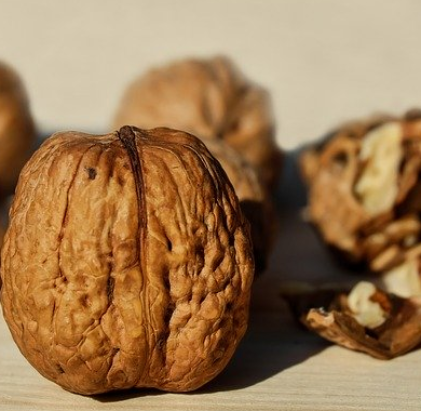- Phytopedia
- NUTS
- Walnut

GEEK TALK
BUT WE TALK
DID YOU KNOW?
Revered and seen as a symbol of intellect since ancient times, the walnut has been consumed for centuries. The English or the Persian walnut is native to the mountainous regions of Central Asia.
The tree itself has always been cherished due to its versatility. Walnut trees can help provide food, medicine, shelter, dye, and lamp oil and it lasts several human lifespans.
While the commercially sold English or Persian walnut originated in Central Asia, the black walnut originated in North America.
While the black walnut is renowned for its great flavor, it has a thicker and hard shell and has poor hulling characteristics.
The walnut itself is the edible seed of the tree. It is a round, small nut which is enclosed in a green fleshy husk. The husk of the walnut contains a juice which is often used as a dye for cloth.
The walnut has long been associated with intellect because the surface of the kernels somewhat resembles a brain.
Walnuts are most often eaten raw and purchased in its shell which usually requires a nutcracker to breakthrough. Still, crushed walnuts are often used as an add-in to yogurt or oatmeal dishes and walnuts are often used in some salads.
When extracted, the oil from the walnut has uses in cooking, medicine, and aromatherapy. Today China is the world’s number one producer of walnuts while the United States of America is second.



